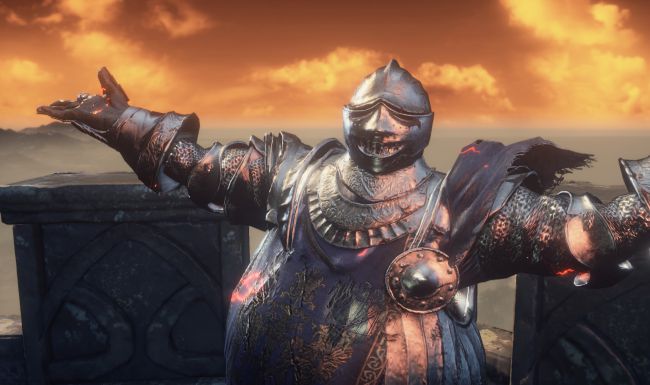Dark Souls 3 class guide

The most difficult part of any Dark Souls game isn't battling monsters or navigating trap-ridden environments—it's choosing how to play. I can't tell you how many times I agonized over which skill to level up next, or before that, which character class to start as. There's no shortage of numbers to parse, and subtle differences between classes can make or break a build. Problem is, Dark Souls 3 still doesn't go out of its way to explain much. But don't worry: once you understand a few basic principles, Dark Souls RPG mechanics are as easy to read as a big red stop sign.
To take off some of the stress of starting a new game, whether it's your first or third time in the world of Dark Souls, we put together a handy guide to what all those numbers mean, the major differences between every starting class, how to level them, suggestions for different playstyles, and where to find the most helpful starting items for each.
Hit the ground dodge rolling, and get a character lined up for Dark Souls 3, including the Ashes of Ariandel and The Ringed City expansions.
- Page two: Knight, Mercenary, Warrior, Herald, Thief
- Page three: Assassin, Sorcerer, Pyromancer, Cleric, Deprived
Other resources: check out our 10 tips for Dark Souls 3 newcomers, and read up on our review. It's a really good game.
Small spoiler warning: a few somewhat hidden early-game NPCs, areas, and items are listed.
Before taking a gander at our recommended character builds on the next two pages, be sure to read up on what the stats we're referring to actually mean.
Player Stats
Level (Lvl): Utilized for Online Play. Soul level and upgrade level are utilized to determine compatibility for Cooperative Play. Invaders must be below the level of the target. Players will attempt to keep their soul level low when building an invading character to maximize their ability to invade easy targets.
The biggest gaming news, reviews and hardware deals
Keep up to date with the most important stories and the best deals, as picked by the PC Gamer team.
Vigor (Vgr): Attribute governing Hit Points. Also governs resistance to Frost.
Attunement (Att): Attribute governing Focus Points, a resource used for special attacks and spellcasting. Also determines number of attunement slots, or how many spells can be equipped at once. Attunement Slots are given at 10, 14, 18, 24, 30, 40, and 50 points.
Endurance (End): Attribute governing stamina. Also governs resistance to lightning and bleeding. Stamina is used when attacking, casting, dodging, blocking, and sprinting.
Vitality (Vit): Attribute governing physical defense, though this is also affected by other attributes. Also governs maximum equip load and poison resistance.
Strength (Str): Attribute required to wield powerful and heavy weapons. Also governs resistance to fire and improves attack strength. Refined and Heavy weapons scale off of Strength.
Dexterity (Dex): Attribute required to wield advanced weapons. Also improves attack strength, reduces spellcasting time, and reduces damage taken when falling. Refined and Sharp weapons scale off of Dexterity.
Intelligence (Int): Attribute required to cast sorceries and pyromancies. Increases spell potency (Pyromancy is affected by both faith and intelligence). Magic defense is also calculated from this attribute. Crystal, Dark, Simple, and Chaos weapons scale off of Intelligence.
Faith (Fth): Attribute required to cast miracles and pyromancies. Increase spell potency (Pyromancy is affected by both faith and intelligence). Dark defense is also calculated from this attribute. Blessed, Dark, Lightning, and Chaos weapons scale off of Faith.
Luck: Attribute governing item discovery. Ups bleeding and poison capabilities. Also governs resistance to curses. Hollow weapons scale off of Luck.
Other Stats
Poise: When hit, players with high poise will not be staggered while performing an action, such as attacking, casting, rolling, or sprinting. High poise also reduces the amount of stamina necessary to block an attack.
Poise Damage: Weapon attribute that governs the ability to cause an enemy to stagger when hit.
Critical Damage: Weapon attribute that governs the damage done after parrying or while backstabbing.
On the next page, read thorough breakdowns of for the first five character classes, including recommendations for a starting gift , play style, where to focus stats, key early items, and important NPCs to find.


